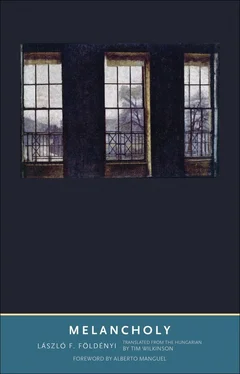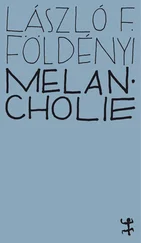Man is just as responsible for his illness as for his health. This ultimate self-dependency makes disease unfathomable and depressing. Man is always more than he is able to reveal of himself: everything that he says about himself is objectifiable — yet man cannot be entirely objectified. The infinity of his horizon, in the last analysis, imposes a limit on determination, and muteness is a sign of the ultimate incommunicability of personality, of the mysteriousness manifesting in individual death. Communication has validity only within the circle of objectifiability: whatever is not objectifiable about a disease is not communicable either. There can be no compromise here: the diagnosis of a bodily symptom, 16along with its objectification, is not the same as a complete understanding of the disease: by merging etiology and pathogenesis, one proclaims that man’s bodily-psychic reality is technically apprehensible.
The concept of disease is accessible, but since it belongs to the essence of man, it cannot be unraveled. This is displayed most spectacularly in connection with the suffering of a patient: the ultimate isolation and abandonment of the individual becomes evident in suffering; indeed, suffering is abandonment itself. (That is why sufferers crave to share their suffering with others.) Suffering reveals that man is in a state of being under perpetual threat. The incommunicability of suffering is a peculiarly human element: in contrast to the pain experienced by animals, it results in (not necessarily conscious) insight. Suffering, which originally meant a movement of the soul (  ), is as much a psychological factor 17as a physical phenomenon (an object of pathology in the strict sense), and is thus one of the keys to the interpretation of human existence. For a long time, the science of pathology concerned itself only with the suffering evoked by bodily changes, 18but in its very name, suffering (
), is as much a psychological factor 17as a physical phenomenon (an object of pathology in the strict sense), and is thus one of the keys to the interpretation of human existence. For a long time, the science of pathology concerned itself only with the suffering evoked by bodily changes, 18but in its very name, suffering (  ) and the spoken word, the law (
) and the spoken word, the law (  ), are linked. Pathology in a broad sense is knowledge built up about suffering , or rather, since suffering is not objectifiable, that is, an adequate knowledge of it cannot be gained, it is the knowledge that emerges from suffering . It is not just a play on words if, moving beyond knowledge, one also discerns in the notion of logos the Christian interpretation of that word: Logos is the son of God, that is, Jesus Christ (1 John 1:14), whose sufferings involved the acceptance of bodily torment as well as the transfiguration that emerged from that. His suffering not only referred to life, as against death, but also showed that suffering was inseparable from life. Man does not suffer by accident, but for one reason or another; suffering, which appears suddenly, signals the original fragility and unresolvable endangerment of human existence. Like disease, which is its most elemental manifestation, suffering does not arrive from outside but is latent in man, ready to burst out at any moment. Therefore, to deprive man of his suffering, however benign the hope, is to pronounce a death sentence (only in death is there no suffering). In Hölderlin’s precise formulation: “Nothing causes greater pain. . than riddling on our suffering” ( Death of Empedocles , act 1, scene 4). 19
), are linked. Pathology in a broad sense is knowledge built up about suffering , or rather, since suffering is not objectifiable, that is, an adequate knowledge of it cannot be gained, it is the knowledge that emerges from suffering . It is not just a play on words if, moving beyond knowledge, one also discerns in the notion of logos the Christian interpretation of that word: Logos is the son of God, that is, Jesus Christ (1 John 1:14), whose sufferings involved the acceptance of bodily torment as well as the transfiguration that emerged from that. His suffering not only referred to life, as against death, but also showed that suffering was inseparable from life. Man does not suffer by accident, but for one reason or another; suffering, which appears suddenly, signals the original fragility and unresolvable endangerment of human existence. Like disease, which is its most elemental manifestation, suffering does not arrive from outside but is latent in man, ready to burst out at any moment. Therefore, to deprive man of his suffering, however benign the hope, is to pronounce a death sentence (only in death is there no suffering). In Hölderlin’s precise formulation: “Nothing causes greater pain. . than riddling on our suffering” ( Death of Empedocles , act 1, scene 4). 19
If medicine seeks to clear up the existential notions of illness and suffering instrumentally, it forgets that technology itself cannot be defined technically. This once more raises the problem of infinitude and incommunicability, which the technophile outlook wishes to reject. One way or another, every sick patient is a mystic, Victor von Weizsäcker declared; they pose problems for which physicians are unprepared. In the vast majority of cases, however, medical science does not hear the question, or, to be more exact, it hears only the questions that it is able to answer. (Unlike pathogenesis, etiology has been a neglected area of medicine to the present day.) Questions implied by the answer are not questions, however. That is doubly true in the case of illness because it is not possible to give unambiguous answers to the real questions relating to disease, just as human existence cannot be exhausted in a logical game of questions and answers. A physician wants to understand a disease, but it is precisely in the conceptual apprehension that a restriction presents itself, which was described by Kierkegaard in the following terms: “The secret of all comprehending is that the very act of comprehension is higher than every position which it posits. The concept posits a position, but the fact that it is comprehended means precisely that it is negated” ( The Sickness unto Death , bk. 2, 3). Conceptual-logical understanding results in the same kind of split in the human phenomenon as the distinction between body and soul: the physician implicitly treats disease as an object to be explained, which seems like an external blow in its “objectivity,” regardless of the position in life of both physician and patient. The relationship between comprehension and the object awaiting comprehension, however, is far from external; indeed, the fact that the two do not exist independently of each other indicates an inner relationship. It is a commonplace that the precondition for human understanding is some kind of profound identity between subject and object, 20which means that the person wishing to acquire knowledge must possess some sort of foreknowledge, or to be more precise, a conjecture of the object to be known. “All knowledge is caused by means of a likeness,” writes St. Thomas Aquinas. “The likeness of a thing known is not of necessity actually [ sit actu ] in the nature of the knower; but given a thing which knows potentially [ in potentia ], and afterwards knows actually [ in actu ], the likeness of the thing known must be in the nature of the knower, not actually, but only potentially” ( Summa theologica , I. 75, q. 1. a. 2.). The modern idea and experience of the self-creation of man proved that man was, and the objective world could not be, separated into “contemplating subjectivity” and “neutral objectivity,” independent of everything. It was not just the problem of body and soul that was radically reformulated but also, in close relationship to it, the question of knowing and understanding. The insight that man is a self-creating being who makes his own history goes hand in hand with the aforesaid transformation of the concept of reality. The “objective” reality waiting to be recognized is always a reality related to man and existing for him — the reality about which man knows nothing is, strictly speaking, unreality. The reality about which he knows, however, is a historical-existential existent resulting from his acquisitive activity (history), that is, even if it turns antihuman, it is never without humans. The relationship of man to the world (which includes the system of man-made institutions as well as nature and the cosmos) is determined historically and existentially. If I want to interpret and get to know reality, then I become part of the interpretation as an object and, at the same time, a subject: the understanding of a so-called objective phenomenon, if I press ahead consistently with my questions about revealing the being of the phenomenon, will eventually lead to understanding myself: I cannot acquire information about something without also gaining knowledge about myself and the life situation that defines the act of cognition. (Admittedly, truth is not just a substance but also a subject, phenomenology teaches; and the understanding of a chemical effect, although an “objective” process, suggests that the phenomenon depends on human interpretation.) “According to pre-dialectical logic, the constitutum cannot be the constituens and the conditioned cannot be the condition for its own condition,” says Adorno. “Reflection upon the value of societal knowledge within the framework of what it knows forces reflection beyond this simple lack of contradiction. The inescapability of paradox, which Wittgenstein frankly expressed, testifies to the fact that generally the lack of contradiction cannot, for consistent thought, have the last word, not even when consistent thought sanctions its norm” (introduction to Adorno et al., The Positivist Dispute in German Sociology ). Returning to Schelling’s earlier thought: man is incapable of taking possession of the precondition of his own existence — hence the dejection that one might call the connective tissue of existence.
Читать дальше

 ), is as much a psychological factor 17as a physical phenomenon (an object of pathology in the strict sense), and is thus one of the keys to the interpretation of human existence. For a long time, the science of pathology concerned itself only with the suffering evoked by bodily changes, 18but in its very name, suffering (
), is as much a psychological factor 17as a physical phenomenon (an object of pathology in the strict sense), and is thus one of the keys to the interpretation of human existence. For a long time, the science of pathology concerned itself only with the suffering evoked by bodily changes, 18but in its very name, suffering (  ), are linked. Pathology in a broad sense is knowledge built up about suffering , or rather, since suffering is not objectifiable, that is, an adequate knowledge of it cannot be gained, it is the knowledge that emerges from suffering . It is not just a play on words if, moving beyond knowledge, one also discerns in the notion of logos the Christian interpretation of that word: Logos is the son of God, that is, Jesus Christ (1 John 1:14), whose sufferings involved the acceptance of bodily torment as well as the transfiguration that emerged from that. His suffering not only referred to life, as against death, but also showed that suffering was inseparable from life. Man does not suffer by accident, but for one reason or another; suffering, which appears suddenly, signals the original fragility and unresolvable endangerment of human existence. Like disease, which is its most elemental manifestation, suffering does not arrive from outside but is latent in man, ready to burst out at any moment. Therefore, to deprive man of his suffering, however benign the hope, is to pronounce a death sentence (only in death is there no suffering). In Hölderlin’s precise formulation: “Nothing causes greater pain. . than riddling on our suffering” ( Death of Empedocles , act 1, scene 4). 19
), are linked. Pathology in a broad sense is knowledge built up about suffering , or rather, since suffering is not objectifiable, that is, an adequate knowledge of it cannot be gained, it is the knowledge that emerges from suffering . It is not just a play on words if, moving beyond knowledge, one also discerns in the notion of logos the Christian interpretation of that word: Logos is the son of God, that is, Jesus Christ (1 John 1:14), whose sufferings involved the acceptance of bodily torment as well as the transfiguration that emerged from that. His suffering not only referred to life, as against death, but also showed that suffering was inseparable from life. Man does not suffer by accident, but for one reason or another; suffering, which appears suddenly, signals the original fragility and unresolvable endangerment of human existence. Like disease, which is its most elemental manifestation, suffering does not arrive from outside but is latent in man, ready to burst out at any moment. Therefore, to deprive man of his suffering, however benign the hope, is to pronounce a death sentence (only in death is there no suffering). In Hölderlin’s precise formulation: “Nothing causes greater pain. . than riddling on our suffering” ( Death of Empedocles , act 1, scene 4). 19










